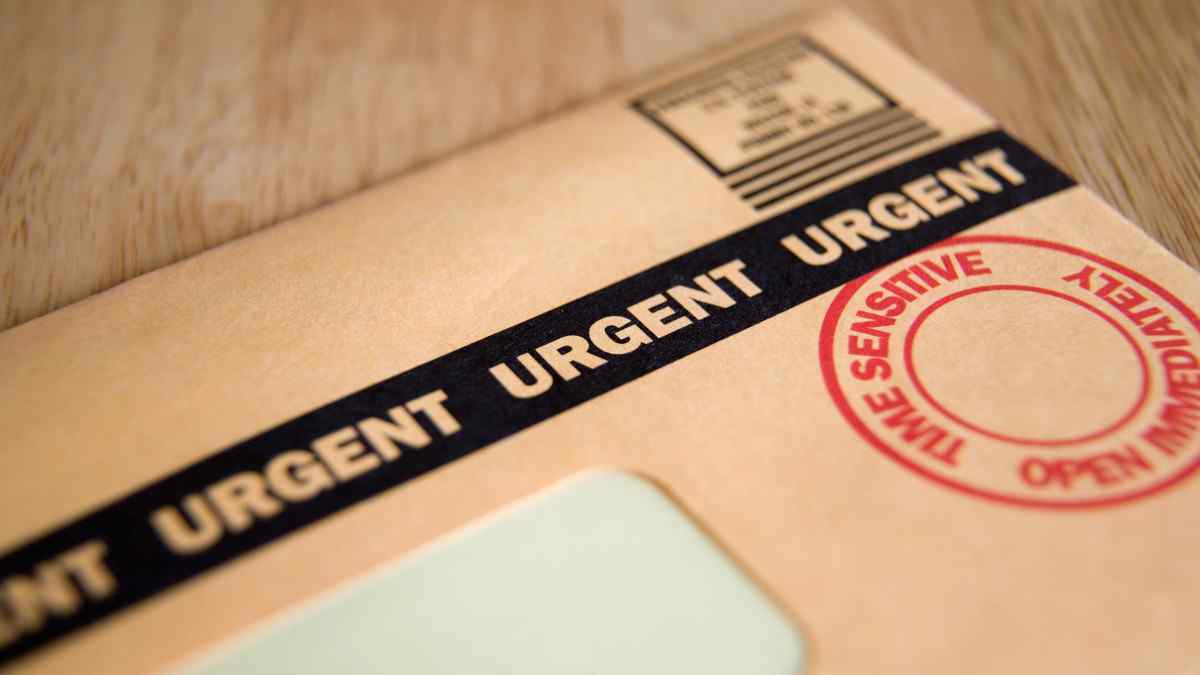How Long Do Late Payments Stay on a Credit Report?
Learn more about what shows up on your credit report and how long the information is viewable.
A credit report is used to determine credit eligibility. The report includes personal details, such as one’s home address, Social Security number, and date of birth. It also contains a detailed record of an individual's financial history, like cash advance limits, payment history, type of accounts, and whether the accounts are overdue or in good standing. The report will also include names of past creditors.
Late Payments on Credit Reports
Late payments are usually included in the credit report about one month or two months past the due date depending on the creditor. If one pays back the debt in full before the 30-day mark, they may avoid having the late payment included in their credit report. Having late payments on the credit report will hurt an individual’s credit score.
How Long does a Late Payment Affect Your Credit?

Late payment may affect an individual's credit score depending on how late the payment is and whether the late payment was reported or not. If the consumer avoids additional late payments, then the impact of the initial late payment will subside over time. However, the consumer's credit score will continue to drop as long as their payments remain delinquent. Note that the credit score also continues to drop with each new missed payment and late payment.
A 90-day late payment has a more negative impact on one’s credit score than a 30-day late payment, which means that it will take a longer time to recover the credit. When one’s account has gone past 180 days, it is closed and reported as a charge-off. In this instance, there is no way to make the account current again.
Therefore, it is recommended to avoid missing payments as much as possible. Apart from affecting the credit score, the missed payments remain on the credit report for future potential creditors to see.
How Long do Missed Payments Stay on a Credit Report?
Many people wonder how long late payments stay on credit reports. The answer is seven years. From the time the account first becomes past due, the late payment will stay on the credit report for seven years before they remove it from the account. If the individual closed the account after paying it off, the entire account is removed from the credit report at the end of the seven years. If an individual was reported to have a 30-day late payment by April 2019, the late payment would be removed from their report on April 2026. The same would apply if the individual had a 60 day or 90 days overdue payment.
It can be hard to find an installment loan while waiting for a late payment to fall off a credit report. Fortunately, there are lenders out there who work with consumers who have made a few mistakes in the past.
Payday Loans for Bad Credit
There are online payday loans for people with bad credit available in case one needs cash for emergencies. The interest charges on these loans vary with different lenders, but they are generally high. For an individual to qualify for this kind of loan, they are required to provide proof of a steady source of income through bank statements.
Types of Credit
There are mainly two types of credit for consumers: open-end and closed-end credit. Open-end credit can be used many times over to make purchases. This type of credit is usually paid back monthly. In many cases, an individual is not obligated to pay back the total amount borrowed each month. A credit card is a form of open-ended credit.
Closed-end credit, on the other hand, is used for specified purposes, and the loan relationship is complete as soon as the money is paid back. Closed-end loans are usually paid in monthly installments, like monthly installment loans, which include interest, and the individuals are required to follow the laid-out plan until their payment is complete. Examples of this type of credit include mortgages and car loans.
A consumer can suffer a missed payment on either of these credit types. In both cases, the missed payment will remain on the consumer’s credit history for seven years.
Missed Credit Card Payments
Credit cards can be used for day-to-day expenses. People use them for grocery shopping, clothes shopping, paying for services, paying for gas, and much more. When a consumer fails to pay the full required amount on their credit card billing statement, the balance is carried off to the next month. Charges are included when the monthly payment is not fully paid.
What Happens if you Miss a Credit Card Payment?
-
One-Day-Late Credit Card Payment
While the standard time for reporting late payments is a month, a creditor can automatically charge a fee to the debtor for late payment even a few minutes after the deadline has passed. The debtor will also be required to pay interest. So even if the late payment will not appear on the individual's credit report and affect their credit score, they can still be penalized for missing the due date. If the consumer is missing the deadline for the first time, they can call the credit company and ask for a fee waiver. A fee waiver is offered at the discretion of the credit card company, is not guaranteed, and will likely not be given to customers who regularly miss payments.
-
Missed Credit Card Payment by a Few Days
In the case where the credit card payment is missed by a few days, the consumer may incur additional late payment fees. Again, this may not necessarily get into their credit card report, but they may end up paying higher interest charges on the pending amount. In this instance, a person can also call their creditor, explain the reason for late payment, and ask for a waiver of the additional charges. If it proves impossible, it's still advisable to pay off the outstanding dues as soon as possible before there can be further consequences.
-
Past 30 Days
Once an individual goes past the 30-day late payment deadline, the creditor reports them to the credit bureau, and the late payment goes on their credit report. This eventually hurts their credit score. Once it's in the report, it remains there for 7 years and could ruin a one's chances with future potential creditors.
Late Mortgage Payment
Falling behind on mortgage payments could risk foreclosure and additional charges and fees. However, most lenders will offer an additional 15-day period after missing the due date before they charge additional fees. But some lenders may demand charges immediately after the due date. After 30 days, the lender reports the debtor to the credit bureau and the same is recorded in their credit report.
How many missed payments before foreclosure?
Most lenders might begin the foreclosure process after the 90-day late payment period lapses and will send a demand letter to the debtor asking them to pay off their outstanding dues. When the debtor is 120 days late, the foreclosure stage begins, and the lender can take legal action against them. The debtor can stay at their home for a little while longer. In this stage, the individual has 90 days to pay the fees. When the time lapses, the lender will issue a notice to sale.
Late Car Payment
Once an individual misses the due date for payment, a creditor can charge additional fees. Some creditors might give a 10-day grace period to pay the outstanding amount before they can charge additional fees. After 30-days, the lender may report the debtor, and the default is included in their credit report.
How many missed payments before car repossession?
Many creditors will repossess a car after the debtor has missed three monthly payments in a row, though repossession laws vary in different states. If the debtor has had a history of late payments, their car can be repossessed after missing a 30-day late payment period. A tow truck comes and tows the individual's car away until they can pay all their outstanding dues.
Can Someone Remove Late Payments from Credit Reports?
Is it possible for someone to have a late payment removed from their credit report? Normally, late payments are removed from credit reports seven years after the late payment. But can someone get their late payment removed before the seven-year period ends?
How to Remove Late Payments from Credit Report
In cases where there is an incorrect late payment on a person's credit report, they can file a dispute with their creditors or with the credit bureau to have it removed. The best way to get the ball rolling to have a creditor to remove a late payment is to write them a goodwill letter or call them and state one’s case.
When it comes to credit reports, an individual's credit history is an important factor, especially when considering new creditors. It is best to avoid late payments at all costs to prevent unnecessary penalties and charges. Late payments can also affect an individual's credit score. By making payments on time, the debtor can protect themselves from unnecessary legal battles. This can be achieved by setting automatic payments every month. Those who don't like the automatic method can simply set up reminders before the due date. Any method is fine as long as payments get to the lender before the due date.





